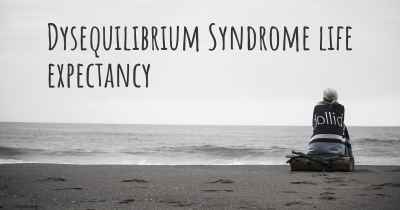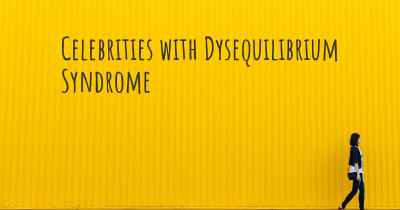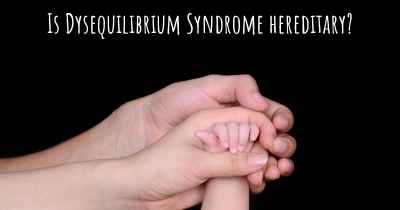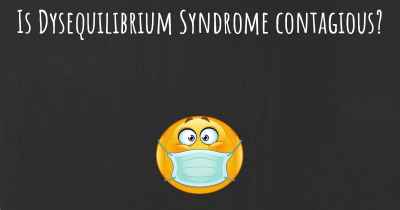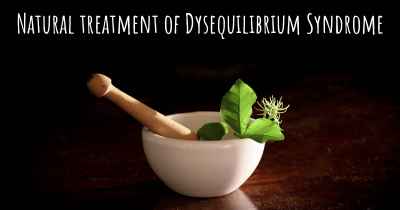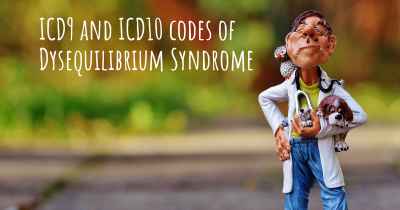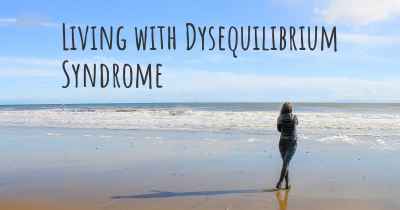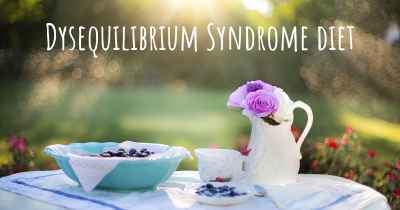Dysequilibrium Syndrome and depression
Can Dysequilibrium Syndrome cause depression? Could it affect your mood? Find out how Dysequilibrium Syndrome can affect your mood.

Dysequilibrium syndrome refers to a condition characterized by a sense of imbalance or unsteadiness, often accompanied by dizziness or vertigo. It can be caused by various factors, including inner ear problems, neurological disorders, medication side effects, or even psychological factors. While dysequilibrium syndrome primarily affects a person's physical balance, it is important to note that it can also have an impact on their mental well-being.
Depression, on the other hand, is a mental health disorder characterized by persistent feelings of sadness, hopelessness, and a lack of interest or pleasure in activities. It can affect a person's mood, thoughts, behavior, and overall quality of life. Depression is a complex condition with various causes, including genetic predisposition, chemical imbalances in the brain, environmental factors, and life events.
The relationship between dysequilibrium syndrome and depression is multifaceted. While dysequilibrium syndrome primarily affects physical balance, the chronic nature of the condition can lead to emotional distress and psychological symptoms. The constant feeling of being off-balance or unsteady can cause frustration, anxiety, and a sense of helplessness. These emotional responses can contribute to the development or exacerbation of depressive symptoms.
Additionally, the impact of dysequilibrium syndrome on a person's daily life can further contribute to depression. The limitations imposed by the condition, such as difficulty with mobility or engaging in certain activities, can lead to feelings of isolation, loss of independence, and a decreased sense of self-worth. The combination of physical and emotional challenges can create a vicious cycle, where the physical symptoms of dysequilibrium syndrome worsen the emotional well-being, and vice versa.
It is important to address both dysequilibrium syndrome and depression simultaneously to provide comprehensive care. Treatment options for dysequilibrium syndrome may include physical therapy, medication, or surgical interventions, depending on the underlying cause. Additionally, managing the psychological impact of the condition is crucial. This may involve therapy, counseling, or support groups to help individuals cope with the emotional challenges and develop strategies to improve their overall well-being.
When it comes to depression, a combination of therapy and medication is often recommended. Cognitive-behavioral therapy (CBT) can help individuals identify and modify negative thought patterns and behaviors associated with depression. Antidepressant medications may also be prescribed to address chemical imbalances in the brain. Lifestyle changes, such as regular exercise, maintaining a healthy diet, and engaging in enjoyable activities, can also support overall mental health.
In conclusion, dysequilibrium syndrome and depression are interconnected conditions that can significantly impact an individual's physical and mental well-being. Understanding the relationship between the two is crucial in providing comprehensive care. By addressing both the physical symptoms of dysequilibrium syndrome and the emotional challenges associated with it, along with treating depression through therapy and medication, individuals can work towards improving their overall quality of life.
